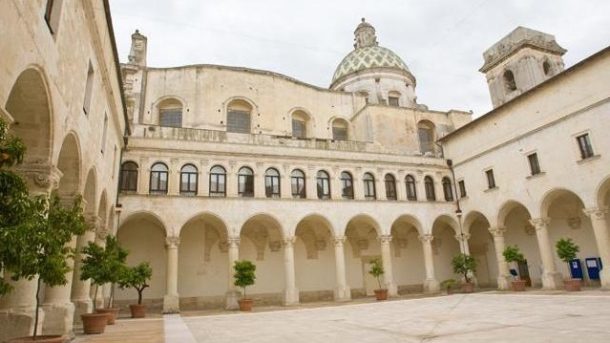COASTAL AND MARINE BIOLOGY AND ECOLOGY
- Country Italy
- Course Duration 2 year
- Course Type Full Time
- Courses Campus On Campus
- Language Specification IELTS
- Program Level Post-Graduate
- Education Required Graduate
- Admission intake SEP
- Minimum GPA 2
Application Charges
| Application Fee | Tution Fee |
|---|---|
| Free | GBP 0 |
Application Date
| Application Start Date | Application Closing Date |
|---|---|
|
2022-12-19
|
2023-02-19
|
Scholarships
| Name | Type | No. Available |
|---|---|---|
| Scholarships |
Program Description
Designed for students passionate of Biodiversity and Ecosystems, seeking for high professional qualification at international level - A promotional video is available at https://www.unisalento.it/web/10122/320.Our course: The Coastal and Marine Biology and Ecology (CMBE) Course delivers qualified education on fundamental and applied biological and ecological marine sciences, integrating eScience and more traditional approaches with the aim of understanding of the fundamental ecological mechanisms underlying the phenomena occurring at various scales in coastal, transitional, and marine ecosystems. CMBE is a two-year, second level course according to DM 270/04, without a programmed number of enrolled students. As specified within the related annual CMBE Manifesto for Educational Activities and the admittance call, it offers two alternative educational curricula, the first one (MARINE BIOLOGY AND ECOLOGY S - MBE) focusing on theoretical and experimental training on multiple issues related to marine biology and marine ecosystems; the second one (E-BIODIVERSITY AND ECOSYSTEM SCIENCES - EBES) focusing on the theoretical foundations of biodiversity organization and ecosystem functioning and devoted to the issue of eco-informatics, i.e. of biodiversity and ecosystem data management, recognizing the biodiversity-ecosystem nexus as an information enterprise, requiring analytical and synthetic capabilities in the generation of services for solving environmental challenge (climate change, emerging ecosystem threats, biodiversity loss, waning natural resources) and the promotion of sustainability.
Enrolment to the Master Course’s curricula requires the possession of specific curricular requisites and the positive evaluation of the personal preparation of the applicant, according to the terms yearly published in the admission call. To obtain the final qualification, a student must achieve a minimum of 120 ECTS (equivalent to CFU, University Formative Credits in the Italian system) including the credits related to the final verification test. This is related to reporting about internship or research work experience - previously approved by the Academic Biology Council - at public or private research institutions, Universities, or companies.
Peculiarity: In Italy, this is the first marine biology and biodiversity course entirely taught in English and the only one delivering a double Master degree by the recent agreement (March 2017) between the University of Lille1, and the University of Salento relative to the MBE curriculum. Students enrolled at one of the two Universities who will spend 6 to 12 months in the second academic year in the other University will earn two master degrees instead of one. Additional double degree agreements are currently developed relative to the EBES curriculum. In Europe it is the first course on eScience biodiversity and ecosystem sciences connected with the European research infrastructure LifeWatch ERIC.
Internationalization: Our faculty members are involved in several European research projects. These links as well as the ERASMUS+ program jointly provide our students excellent opportunities to spend up to 12 month- mobility periods abroad, and to fulfil a master thesis in prestigious European research institutes. In this context, students from all over Italy and abroad find a stimulating training environment, including practical applications, making the course a true international laboratory.
Job opportunities: The main occupational perspectives deal with research and consultancy work in public bodies and private companies in the field of conservation and management of coastal and marine ecosystems, management of protected areas, assessment of the environmental health status and risks. Also, the CMBE degree opens the access to postgraduate and PhD courses in several areas of Marine and Ecosystem Sciences. The availability of a 14-m long research boat and terrestrial vehicles equipped for the different types of sampling activities represent further support to the need of gaining the practical skills typically requested by the international job market. Additionally, new job opportunities will be open in the private and public sectors dealing with environmental data curation, management and analysis thanks to the competences in bio- and eco-informatics that the students will acquire with the Course. Moreover, the EBER curriculum opens the access to postgraduate and PhD courses in several areas of Conservation Biology, Ecology, BioInformatics and EcoInformatics.
change, emerging ecosystem threats, biodiversity loss, waning natural resources) and the promotion of sustainability.





